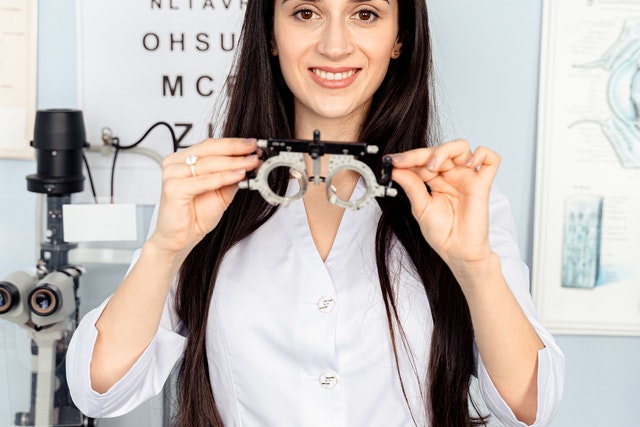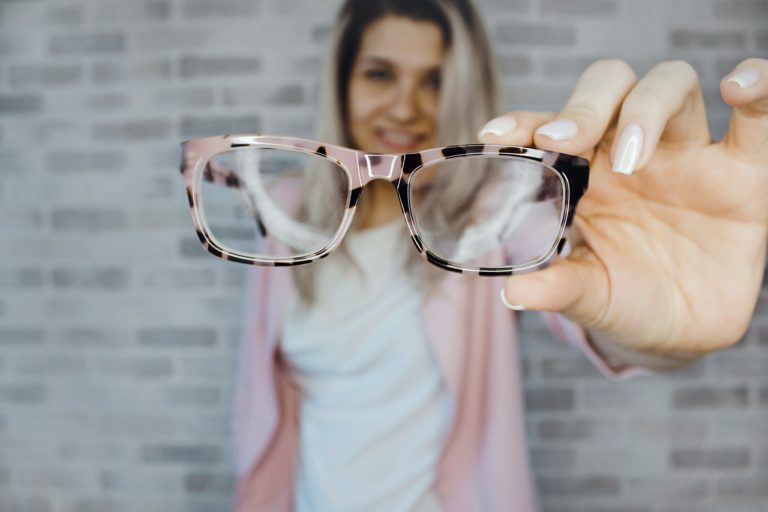During this Summer season it is exceptionally important to protect the eyes from ultraviolet radiation. Prescription sunglasses, with polarised lenses, correct your vision and protect the eyes from ultraviolet (UV) radiation.
Jacqueline Gattengo, a Smart Vision Optometrist at Eyes InDesign Bondi, explains the importance of taking precautionary measures to protect the eyes from ultraviolet (UV) light radiation.
Excessive hours in the sun, without any form of protection, can result in blurred vision, light sensitivity, excessive tearing of the eyes and blindness.
Wearing sunglasses on the beach is an important eye wear protection. The beach is filled with reflective UV rays that bounce off from the water and sand. In other words, you are exposed to reflective UV radiation, even in the shade. The reflective rays can be just as harmful as direct UV radiation to the skin and eyes. “You should wear sunglasses in the shade and cloudy conditions,” says Jacquie.
The over exposure of UV radiation can increase the risk of developing eye disorders or diseases, such as cataracts, growth on the eye and cancer. In the advent of this summer season, one needs to remember that warm conditions affect the tear film of the eye causing the surface of the eye to dry out.
The sun glare and directly looking at the sun “cause excessive damage to the eyes, as it not only causes sunburn to the eyes, but may result in permanent eye damage and vision loss,” says Jacquie.
While light is essential for sight and vision, certain types of light such as ultraviolet A (UVA) and ultraviolet B (UVB) rays can cause significant damage to the eye. “The most common eye conditions and injuries caused by UV light include; cataracts, macular degeneration, pterygium, photokeratitis, and skin cancer of the eyelid,” says Jacquie.
Photokeratitis is a painful temporary eye condition that is caused by exposure to Ultraviolet (UV) rays. This damages the corneas of the eyes.
Long hours in the sun, the use of sun lamps, tanning beds or tanning booths, can also cause photokeratitis, therefore, to avoid this, it is important to find shady areas. A brimmed hat is also advice to wear “even if you are not in direct sunlight,” says Jacquie.
Wearing UVA and UVB sunglasses on the beach can “protect the eye from harsh UV rays and strong glares, on the beach,” says Jacquie.
In the sea, however, swimmers and surfers should consider wearing UV blocking goggles. Jacquie also advices that “contact lenses should be worn with caution under water as they may harbour bacteria and lead to eye infection.”
Symptoms of sun damage to the eyes to look out for include, discomfort or redness in the eyes, tears, blurry vision, swelling, light-sensitivity, and short term loss of vision. “If vision loss does not improve in a few hours, contact an eye specialist, says Jacquie.
To protect the eyes from sun damage, protecting the face from sun damage also reduces the harshness of harmful UV rays. One should wear sunscreen, a brimmed hat as well as sunglasses to protect the eyes, especially in direct sunlight.
Damage to the eyes can be permanent or semi-permanent. “Rather than risking permanent damage, avoidance is the key to avoid overexposure,” concludes Jacquie.
Smart Vision Optometry clinics are located in Sydney. Book a Smart Vision Comprehensive Vision Skills Assessment or Advanced Eye Health Test for any child or adult by calling the Bondi clinic (02) 9365 5047 or the Mosman clinic (02) 9969 1600, alternatively book an appointment online.







